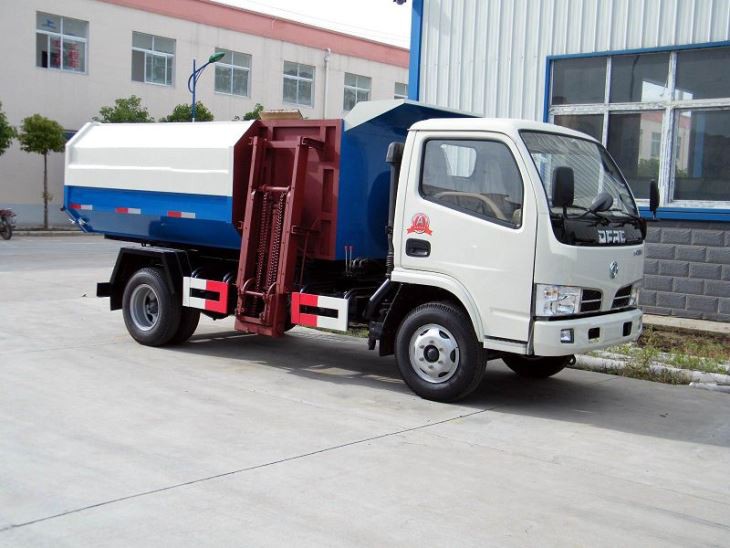Introduction
Truck tankers are a vital component of the transportation industry, responsible for carrying a variety of liquids such as fuel, water, chemicals, and food products. Understanding how many gallons a truck tanker can hold is essential for logistics, planning, and efficient operation. In this article, we will explore the different types of truck tankers, their capacities, and practical applications. We will also answer frequently asked questions and provide tips for handling these vehicles safely and effectively.
Understanding Truck Tankers
What is a Truck Tanker?
A truck tanker is a specialized vehicle designed to transport liquid cargo. These vehicles feature cylindrical tanks mounted on a truck chassis, which can vary in size and design depending on the cargo requirements.
Types of Truck Tankers
There are several types of truck tankers, each designed for specific purposes:
- Petroleum Tankers: Designed for transporting gasoline, diesel, and other petroleum products.
- Chemical Tankers: Built to carry hazardous and non-hazardous liquids, including acids and solvents.
- Food Grade Tankers: These tankers are used for transporting food products and must meet strict sanitary standards.
- Water Tankers: Used for transporting water for construction, fire-fighting, or municipal use.
Truck Tanker Capacities
Standard Capacities of Truck Tankers
The capacity of a truck tanker can vary widely based on its design and the type of liquid it carries. Below are standard capacities for different types of tankers:
| Type of Tanker | Typical Capacity (Gallons) |
|---|---|
| Petroleum Tanker | 5,000 – 11,600 |
| Chemical Tanker | 6,000 – 10,000 |
| Food Grade Tanker | 5,000 – 8,500 |
| Water Tanker | 3,000 – 6,000 |
Factors Influencing Tanker Capacity
Several factors can influence the capacity of truck tankers:
- Design and Configuration: The shape of the tanker and the materials used can affect its overall capacity.
- Legal Regulations: Local and federal regulations may impose limits on the amount of liquid transported.
- Liquid Density: Heavier liquids require stronger materials and may reduce the overall capacity.
Real-World Examples of Truck Tanker Usage
Fuel Transportation
Fuel tankers are crucial for the supply chain of gas stations and industries relying on diesel. A typical petroleum tanker can transport approximately 8,000 gallons of gasoline to minimize the number of trips required.
Chemical Handling
Chemical tankers often come equipped with specialized fittings and materials to prevent contamination. The capacity of a chemical tanker might be around 6,500 gallons, ensuring that industries can transport hazardous materials safely.
Water Delivery Services
Water tankers serve essential community needs. For instance, a water tanker with a capacity of 3,500 gallons can supply water for construction sites or emergency services.
Best Practices for Operating Truck Tankers
Safety Precautions
Safety is paramount when operating truck tankers. Consider the following precautions:
- Ensure proper training for drivers on how to handle hazardous materials.
- Regularly inspect tanks for leaks or wear.
- Follow all safety protocols during loading and unloading to prevent spills.
Efficient Loading and Unloading Tips
To enhance efficiency in loading and unloading, consider these tips:
- Utilize specialized pumps to reduce transfer times.
- Implement a schedule to avoid congestion at transfer points.
- Use visual aids and signage for clear communication among staff.
Compliance with Regulations
Adhering to local and federal regulations is critical for legal compliance. Regularly review regulations related to:
- Vehicle specifications.
- Load capacities.
- Transporting hazardous materials.
Cost Considerations for Truck Tankers
Initial Purchase Costs
The cost of purchasing a truck tanker can vary based on its type and specifications. A new petroleum tanker can range from $100,000 to $200,000 or more, depending on its features.
Ongoing Maintenance Costs
Maintenance is another important consideration for truck tanker operators. Regular maintenance can cost around $10,000 to $20,000 annually, depending on usage and the type of liquids transported.
Insurance Expenses
Insurance is essential for safeguarding against liabilities. Insurance costs for truck tankers can typically range from $5,000 to $30,000 annually, depending on the type of cargo and driving history.
Environmental Considerations
Reducing Environmental Impact
There are several ways to minimize the environmental footprint of truck tankers:
- Regular maintenance and inspections to prevent leaks.
- Using eco-friendly products whenever possible.
- Implementing efficient driving practices to reduce fuel consumption.
Regulatory Compliance for Emissions
Truck tankers must comply with emissions regulations, which can vary by region. Being proactive can help avoid fines and ensure cleaner operations.
Future Trends in Truck Tanker Technology
Innovative Designs
As technology advances, truck tankers are designed with improved aerodynamics and materials that enhance fuel efficiency and capacity.
Telematics and Monitoring Systems
Telematics technology will enable real-time monitoring of tanker performance, allowing for better logistics and reducing unnecessary trips.
Alternative Fuel Options
Increasing interest in alternative fuels, such as electric and hydrogen-powered trucks, may revolutionize the truck tanker industry in the coming years.
FAQ
Q1: How many gallons does a typical fuel tanker hold?
A typical fuel tanker can hold between 5,000 and 11,600 gallons, depending on its design and purpose.
Q2: What factors affect the capacity of a truck tanker?
Factors such as the design of the tanker, local regulations, and the density of the liquid being transported can affect its capacity.
Q3: Are there different regulations for transporting hazardous materials?
Yes, transporting hazardous materials requires strict adherence to specific regulations set by federal and local authorities to ensure safety.
Q4: How do I maintain a truck tanker for optimal performance?
Regular inspections, maintenance, and utilizing proper loading and unloading techniques help ensure optimal performance.
Q5: Can water tankers be used for potable water delivery?
Yes, food-grade water tankers are designed for transporting potable water, but they must meet health and safety regulations.
Q6: What advancements are being made in truck tanker technology?
Advancements include improved aerodynamic designs, telematics for real-time monitoring, and the exploration of alternative fuel options.





